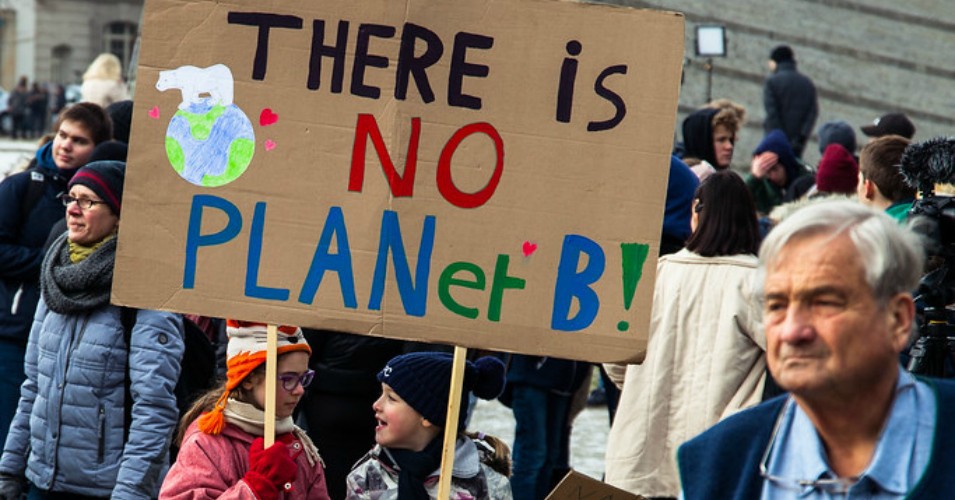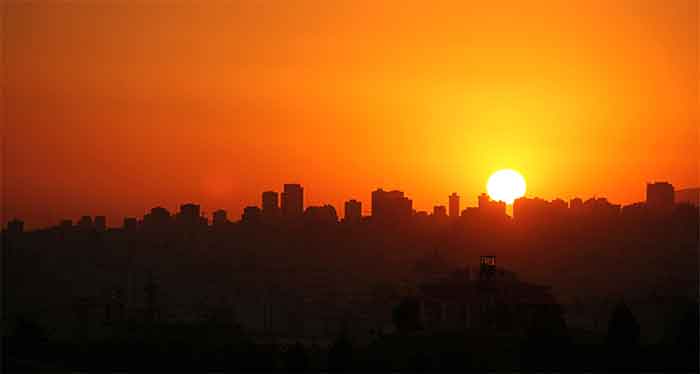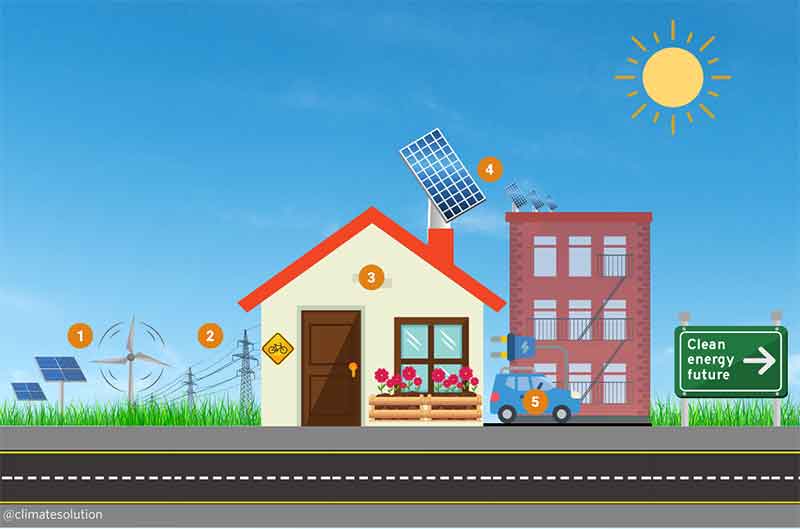Planet on the Boil: Twinkle-Uncle Dialogue on Climate Stalemate

Uncle: Among all these A-B-C-D’s where exactly are we, Twinkle?
Twinkle: Uncle, we do and must take an unambiguous and uncompromising position that the climate crisis is a real and direct threat to our common home, the Earth. There are huge fault lines in the debate as we have already discussed. The North-South chasm is particularly troubling.
I have noticed that the industrialized countries did not keep the promise made at the 1992 Earth Summit in Rio to voluntarily reduce greenhouse gas emissions to 1990 levels by 2000. Some 24 countries made such a promise but failed to act on it. Then the 11-day UN Climate Conference took place in Berlin in 1995 and some 900 delegates from nearly 120 countries took part in it. The debates between the rich North and the poor South were central to this conference. The then environment minister of Germany, Angela Merkel, said, “We are all in the same boat.” Nonetheless, it is pertinent to note here that the US per capita emissions were 15-20 times higher than those in the developing world.[1]
India’s environment minister, Kamal Nath, proposed that the rich countries transfer $100 billion a year to the poor countries as “environmental rent” for freeloading on their back. Norway’s environment minister, Torbjoern Berntsen, demanded “a shift in the world economy” and said, “This will require a shift in consumption and lifestyle patterns.” But the US negotiator, Rafe Pomerance, put everyone down by saying, “We can’t write a blank check.” The US energy and automotive lobby was very particular that the UN conference did not adopt measures that could hurt American competitiveness and give the UN too much influence over US policy.[2]
A Guardian newspaper investigation in 2009 revealed that the rich countries had promised $18 billion to help the poor countries adapt to climate crisis over the preceding seven years but disbursed only a meagre 5 percent of that money. Even that small amount was transferred from foreign aid budgets. As George Monbiot says, “The ecological debt the rich world owes to the poor [for carbon production] will never be discharged” just as no reparations were ever paid for the indigenous peoples’ genocides, slave trade, colonial plunder and so on.[3]
The United States changed its stand later and wanted the South countries to become accountable as well. Following the ‘Major Economies Forum,’ a 17-nation body, launched by President Barack Obama in March 2009, the White House spokesman Robert Gibbs said: “This is not just a one-country solution. There has to be an international effort to address this.”[4]
Uncle: I can see the North countries are quite wishy-washy about the whole climate crisis issue, isn’t it?
Twinkle: Not only the North countries, uncle. There are a lot of wacky and quirky intellectuals in the North who come up with weird explanations and/or solutions. One such person is Pentti Linkola, a Finnish eco-fascist thinker. For the world’s problems such as overpopulation, dwindling natural resources, industrial trashing of the biosphere etc., he has one proposal: “annihilate most of the human race.” According to him, what the world needs now is famine and a good war. He says: “Everything we have developed over the last 100 years should be destroyed.” But he uses telephone and electricity and does not act out the violence he espouses. He has not killed anybody or himself to practice what he preaches.[5]
Then there is Jordan B Peterson, a 55-year-old Canadian psychology professor and culture warrior, currently the most influential public intellectual in the Western world. He has a striking habit of demonising the left while downplaying dangers from the right. During a new four-hour interview on Spotify’s most popular podcast, Peterson – who is not an expert on climate crisis – claimed that the models used to forecast the future state of the climate could not be relied on.
Peterson said: “Another problem that bedevils climate modelling, too, which is that as you stretch out the models across time, the errors increase radically. And so maybe you can predict out a week or three weeks or a month or a year, but the farther out you predict, the more your model is in error. Peterson said that if the climate was “about everything” then “your models aren’t right” because they couldn’t include everything.[6]
Professor Christian Jakob, a climate modelling expert at Monash University, said Peterson’s comments were “ill-informed” and that he had “mixed up weather prediction with climate projections. According to Professor Michael Mann, an atmospheric scientist at Penn State University, Peterson’s claim that the climate was too complicated showed “a total lack of understanding of how science works” and same argument could be used to dismiss physics, chemistry, biology, “and every other field of science where one formulates conceptual models.”[7]
Uncle: All this goads us to adopt the triple A position of ‘Accept, Anticipate, and Act,’ right?
Twinkle: Precisely, uncle. There are quite a few important books to help us do that. George Monbiot’s Heat: How We Can Stop the Planet Burning (Penguin, 2007), Fred Pearce’s When the Rivers Run Dry: Water – The Defining Crisis of the Twenty-first Century (Beacon Press, 2007) and The Rough Guide to Climate Change (Dorling Kindersley, 2011), Jonathan Neale’s Stop Global Warming: Change the World (Bookmarks, 2008), Michael Mann’s The New Climate War: The Fight to Take Back Our Planet (Penguin, 2021), Al Gore’s documentary, An Inconvenient Truth (2006) are some of the books and documentaries that help me understand the length and breadth and depth of the issue at hand. As someone said, it is high time we moved the climate debate from science and scenarios to politics and precautions.
The writer is a social and Green political activist from the southernmost tip of the South Asian peninsula, Email: [email protected].
[1] Frank Bajak, “Global warming perils fail to move world to action,” The Honolulu Advertiser, April 9, 1995.
[2] Ibid.
[3] George Monbiot, “The climate fight must go on,” The Hindu, March 18, 2009.
[4] S. Rajagopalan, “Climate change: US renews bid to rope in India, China,” The Indian Express, September 18, 2009.
[5] Dana Milbank, “In His Solitude, A Finnish Thinker Posits Cataclysms,” The Wall Street Journal, May 20, 1994.
[6] Joe Rogan’s Podcast.
[7] Ibid.
















































